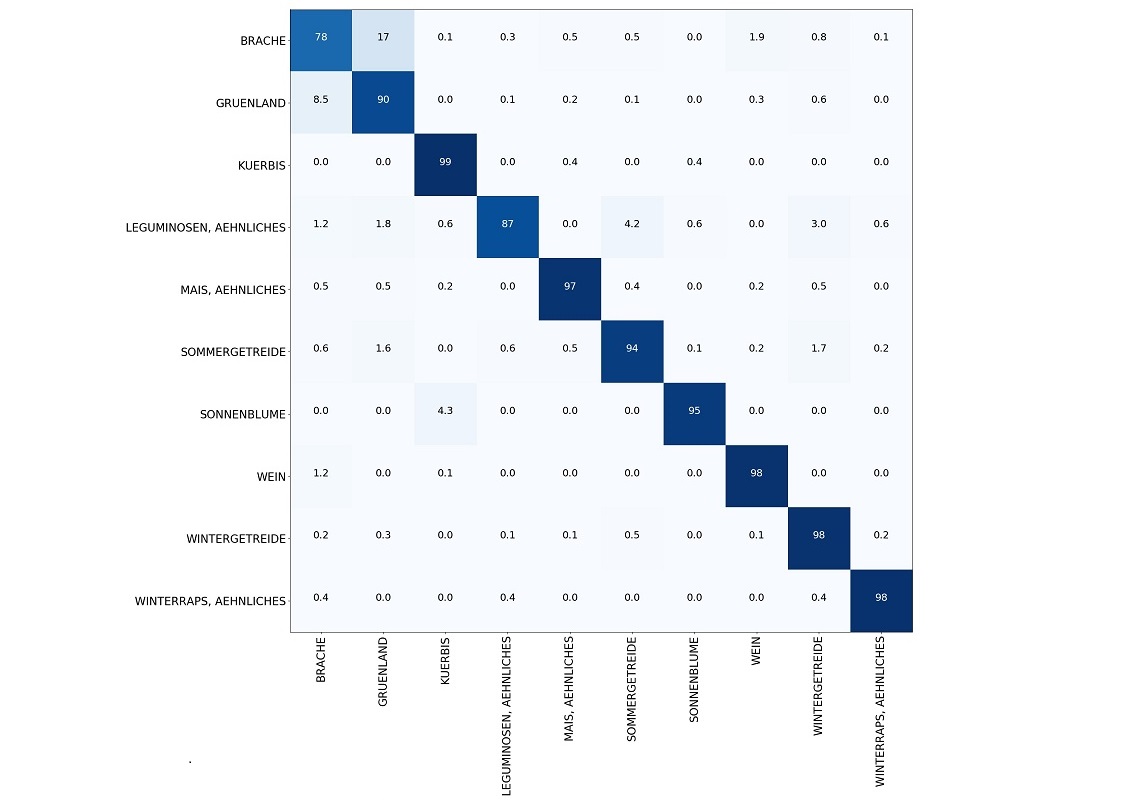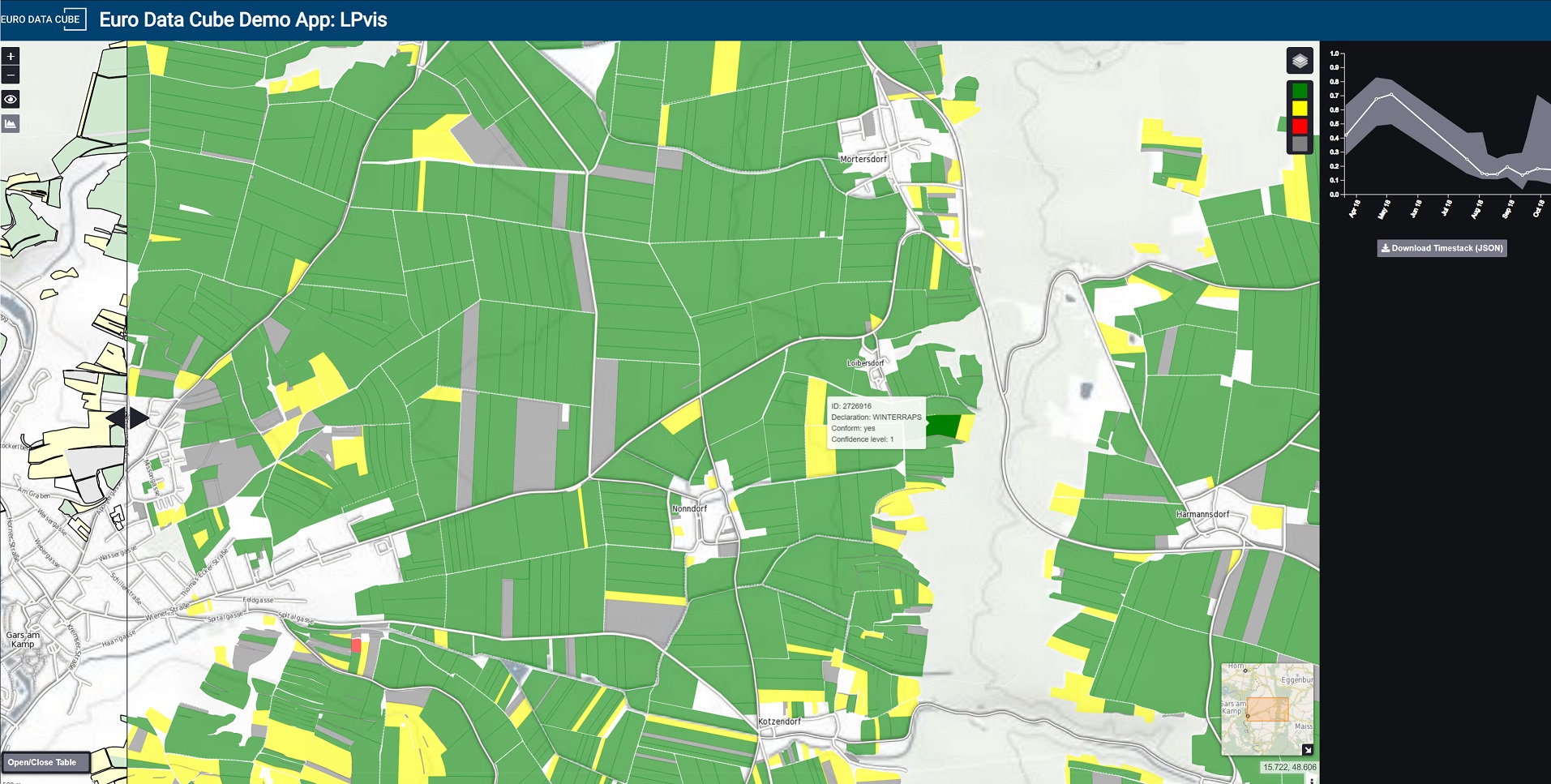Demonstrator deployed on EOxHub
This is a fork of the
LPvis 🕺
Pronounce: "Elpvis" | FOSS Webapp for LPIS declaration conformity assessment and validation of ML classification results
demo project with the goal to extend the capabilities of the (UI only) prototype with concrete backend functionality:
-
connect to EDC Sentinel Hub service to retrieve NDVI timestacks for a concrete LPIS parcel
-
apply a trained Crop-Type classification ML as derived via EDC LPIS Use-case on agricultural parcels within a small sample region in Austria
-
use Crop-Type predictions as stored in EDC GeoDB to visualize "declaration" vs "classification result" for LPIS parcels
-
LPIS/IACS data - i.e. agricultural parcel boundaries as well as farmer crop type declararation - are ingested in Euro Data Cube - geoDB vector databases: this has been done with open government data of Austria for the years 2016, 2017, 2018
-
Euro Data Cube - geoDB data is exposed as vector tile layer: we decided to export static vector tiles from geoDB and bundle them together with the application for this demo, uploading these files to S3 or syncing geoDB to PostGIS to be served directly would be more scalable options. In order to be able to reproduce the vector tile creation preprocessing a jupyter notebook was added: a link
-
a validated dataset of farmer declarations of 2018 is used to train a Crop-Type classification ML on a sample region, this model is applied to a larger region based on NDVI timestacks for 2018 and stored back in Euro Data Cube - geoDB
Note: the trained ML model uses Crop-Type groups (like Sommergetreide) and not concrete Crop-Types (like ZuckerMais, Hirse), a mapping table was used for traffic light visualization (e.g. green = farmers Crop-Type declaration matches predicted Crop-Type group with prediction model accuracy > 95%)
The current backend implementation requires EDC service subscriptions to retrieve NDVI timestacks and to handle LPIS/IACS data as well as Crop-Type predictions.
In order to run the app as in the demo, data has to be prepared in database and the following environment variables have to be set in Docker container:
# for EDC Sentinel Hub
SH_CLIENT_ID=
SH_CLIENT_SECRET=
# for EDC GeoDB
GEODB_API_SERVER_URL=
GEODB_AUTH_CLIENT_ID=
GEODB_AUTH_CLIENT_SECRET=
GEODB_AUTH_AUD=
GEODB_API_SERVER_PORT=
GEODB_AUTH_DOMAIN=
# for Crop-Type model to use, e.g. 1
GEODB_MODEL_ID

